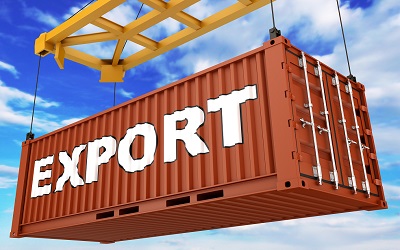The Australian economy has long benefited from Asia’s appetite for resources. But the region’s
burgeoning middle-class increasingly wants an even broader range of products and services.
Unfortunately, many Australian companies are not providing it.
“I was talking to a French wine distributor in China who took an order on a particular line of Bordeaux which moved the global price because it was so substantial,” says PwC Private Clients partner James McElvogue.
“The Australian experience seems to be a little behind given our proximity and the natural affinity we have with the region.”
In fact, a recent PwC report found that just 9 per cent of more than 1000 Australian businesses surveyed were currently operating in Asia, despite predictions that the region will produce half of the world’s total economic output by 2025. Meanwhile, just 5.7 per cent of Australia’s foreign direct investment was directed into ASEAN countries.
McElvogue says the situation has somewhat improved since the survey was conducted in late-2014 although a number of concerns still hold back Australian businesses. Key barriers cited include cultural differences, uneven playing fields, pockets of corruption, and legal and trade barriers.
“It still has its challenges – there’s still resistance and a level of anxiety largely based around the rule of law and the unpredictability of Communist party legislative changes.”
The once surging share price of supplement company Blackmores was sent into a tailspin in April when the Chinese government unexpectedly announced an 11.9 per cent tax on products bought from foreign websites. It demonstrates the risks but, with Chinese consumers representing 40 per cent of Blackmore’s $341.4 million half year revenue to December 31, 2015, it is an opportunity few could ignore.
Seizing that opportunity requires a different approach. Many Australian companies find a Chinese partner but fail to define their expansion strategy beforehand, making it difficult for the partnership to deliver maximum value.
‘They want to talk about your family’
The concept of ‘Guanxi’ (pronounced Gwan-shee) – bridging cultural differences by building relationships – also remains important when expanding into China.
“When you sit down with a Chinese buyer they want to talk about your family and understand you while Australians or Westerners often just want to get the deal done – that can create enormous offence because they want to understand you.”
While China’s growth is slowing, it remains strong by global standards and the China-Australia Free Trade Agreement (ChAFTA), which took effect last December, is also expanding opportunities.
“I’m starting to hear clients say ‘We’ve suddenly had a reduction in price from the FTA on this component we use in our product’,” McElvogue says.
While trade opportunities in China attract much attention, other Asian countries such as Japan and Singapore – with rules of law more similar to Australia – can offer a lower risk entry point. Singapore is ranked as the easiest place to do business in the world according to the World Bank (Australia is ranked in thirteenth place).
It is a path pursued by Western Australian-based food and agribusiness company Craig Mostyn Group, which has focused on Singapore as its key export market for chilled pork over the past 3-4 years although it also exports to Taiwan, Hong Kong, and China.
The Australian government recognised the importance of Asia in its 2012 ‘Australia in the Asian Century’ white paper and it continues to provide substantial support for local businesses expanding into Asia.
The NSW Business Chamber set up its Export Growth China office in China last year which matches businesses to Chinese partners and takes care of compliance concerns.
“It’s such a heavily subsidised opportunity – it’s a great way to put your toe in the market,” McElvogue says.
Austrade’s Export Market Development Grants scheme can help small-to-medium sized businesses fund export promotion expenses while the government’s export credit agency, Efic, can provide financial solutions to businesses when banks choose not to.
“They will even fund infrastructure on the ground here if it’s about promoting export, and people just aren’t aware of it.”
For example, last year Mount Druitt’s Nova Spring Water landed a significant initial order from China, which required the company to scale up its production.
“How do you gear yourself up for that?” McElvogue asks. “The government support is critical.”
文波陪伴,英语不难
文波陪伴,PTE不难
墨尔本悉尼文波PTE培训学校原创首发





